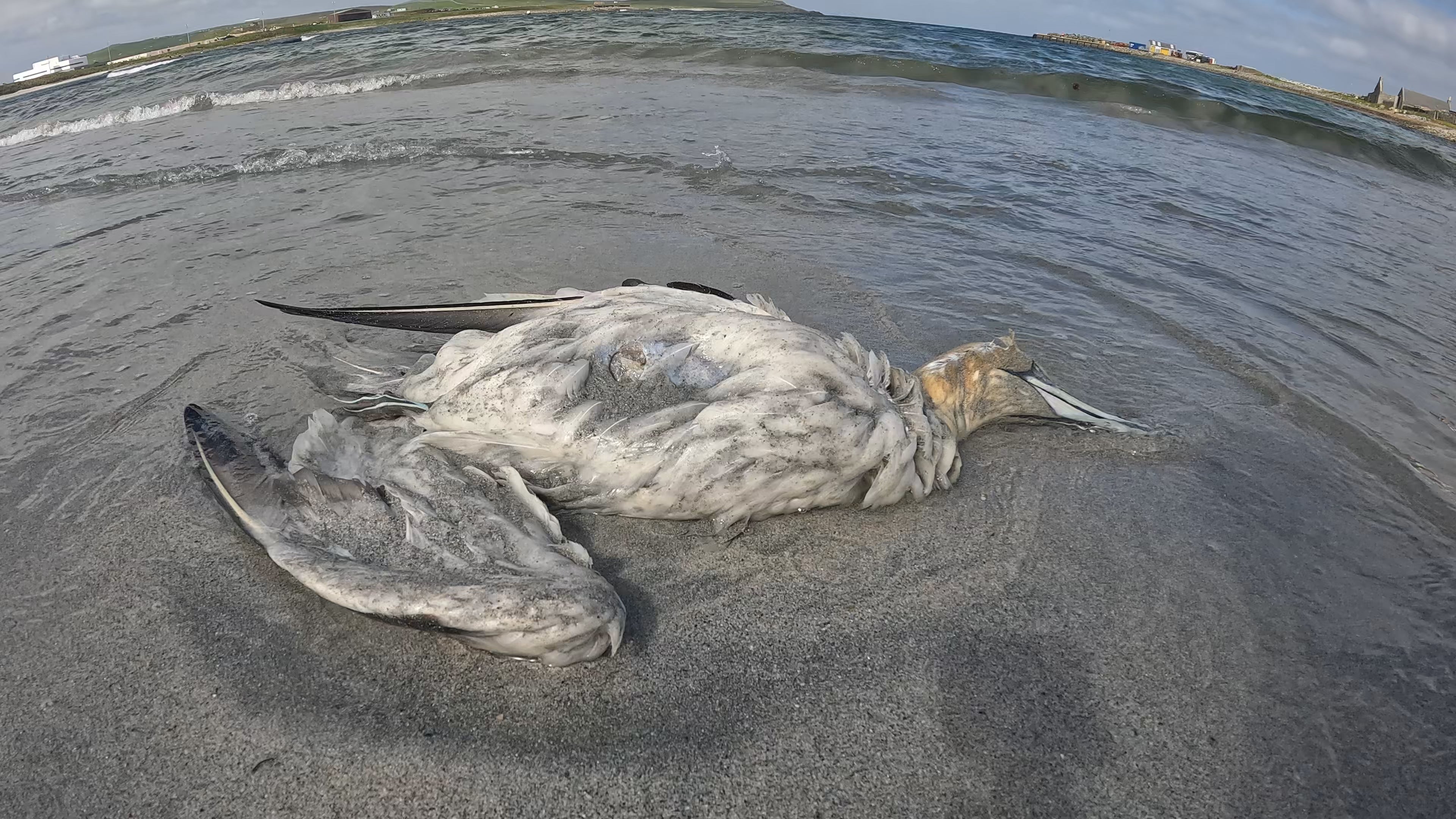Scottish Government urged to act over rising seabird deaths
About 1,000 dead gannets have been recorded so far, and hundreds of great skuas have also been found dead or dying.

Your support helps us to tell the story
From reproductive rights to climate change to Big Tech, The Independent is on the ground when the story is developing. Whether it's investigating the financials of Elon Musk's pro-Trump PAC or producing our latest documentary, 'The A Word', which shines a light on the American women fighting for reproductive rights, we know how important it is to parse out the facts from the messaging.
At such a critical moment in US history, we need reporters on the ground. Your donation allows us to keep sending journalists to speak to both sides of the story.
The Independent is trusted by Americans across the entire political spectrum. And unlike many other quality news outlets, we choose not to lock Americans out of our reporting and analysis with paywalls. We believe quality journalism should be available to everyone, paid for by those who can afford it.
Your support makes all the difference.Urgent calls have been made for the Scottish Government to develop a response plan to the thousands of dead seabirds found on Scotland’s coastline.
Highly Pathogenic Avian Influenza (HPAI) has swept through colonies, affecting various species in great numbers.
It is estimated that more than 1,000 gannets and many hundreds of great skuas have been found dead so far, according to reports.
Scotland has 60% of the world’s population of breeding great skuas and 46% of breeding gannets.
RSPB Scotland has urged the Scottish Government and NatureScot to respond to the situation and ensure measures are put in place to reduce any further threats to seabirds.
Other species affected include sandwich and Arctic terns, with reports of high mortality at a colony on the Mull of Galloway where a number of dead guillemots have also been found.
Shetland appears to be the most heavily affected, where there have been reports of widespread deaths at Noss and great skua (bonxie) colonies, but also at Fair Isle, Orkney, the Western Isles, Handa, the Flannan Isles, St Kilda, Troup Head in north-east Scotland, and Bass Rock in the Firth of Forth.
Restrictions were put in place in Shetland last week following a confirmed outbreak of bird flu in a commercial flock.
It followed dozens of wild birds dying in a suspected avian flu outbreak at Loch Fleet, near Golspie in Sutherland, last month.
Stewart Bain, of the RSPB, said the reports have been heartbreaking to receive.
He urged anyone who sees sick or dead birds to avoid contact with them and to report them to Defra helpline, adding: “This will help give a clearer picture of the situation and inform how it is dealt with.”
Mr Bain said members of the public should take extra care to not disturb nesting birds to help protect numbers that appear to be decreasing fast.
Last winter HPAI devastated numbers of barnacle geese in the Solway, between Cumbria and Dumfries and Galloway, with estimates of a loss of more than a third of the world’s Svalbard population, according to RSPB.
Dr Paul Walton, head of species and habitats for RSPB Scotland, said: “Scotland’s seabirds are already facing multiple severe pressures generated by people – climate change, prey fish shortages, invasive species brought to islands, mortality in fishing gear, and poorly sited wind turbines.
“These populations have halved since the 1980s. Now, a highly mutable and deadly new form of avian influenza, which originated in poultry, is killing our wild seabirds in large numbers.
“We urge the Scottish Government and NatureScot to develop a response plan urgently – to co-ordinate surveillance and testing, disturbance minimisation, carcass disposal and biosecurity.
“Seabirds are long-lived, take longer to reach breeding age and tend to produce fewer offspring than geese, meaning impacts of high adult mortality on future numbers could be much more significant and any recovery take far longer.
“Yet, seabirds already face many other significant threats and many species have suffered severe declines in numbers over recent decades.”
A Scottish Government spokesman said last winter had seen the “largest outbreak of avian flu in the UK to date”, which had affected wild birds as well as commercial flocks.
“While maintaining high levels of biosecurity among domestic flocks helps protect against disease, addressing the disease among wild birds poses significant challenges,” the spokesman said.
“Avian influenza is a disease that affects the wild bird population globally.
“The Scottish Government is taking the situation very seriously and is working hard with partner organisations to progress measures to respond to the reports of increased mortality among wild bird populations and help them become more resilient.”